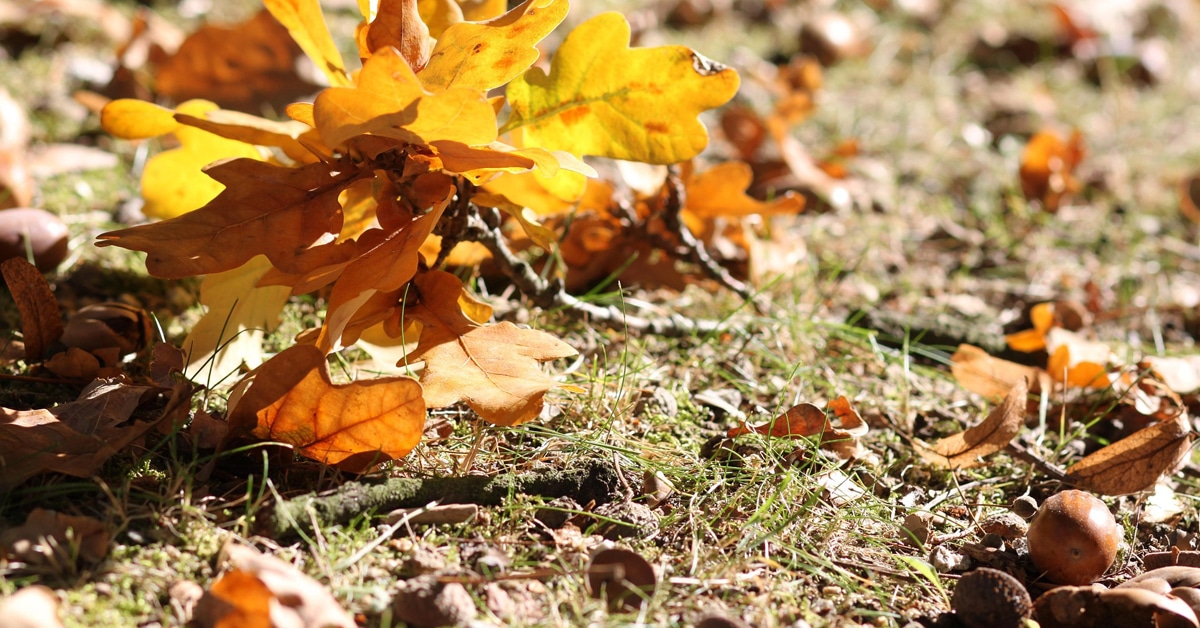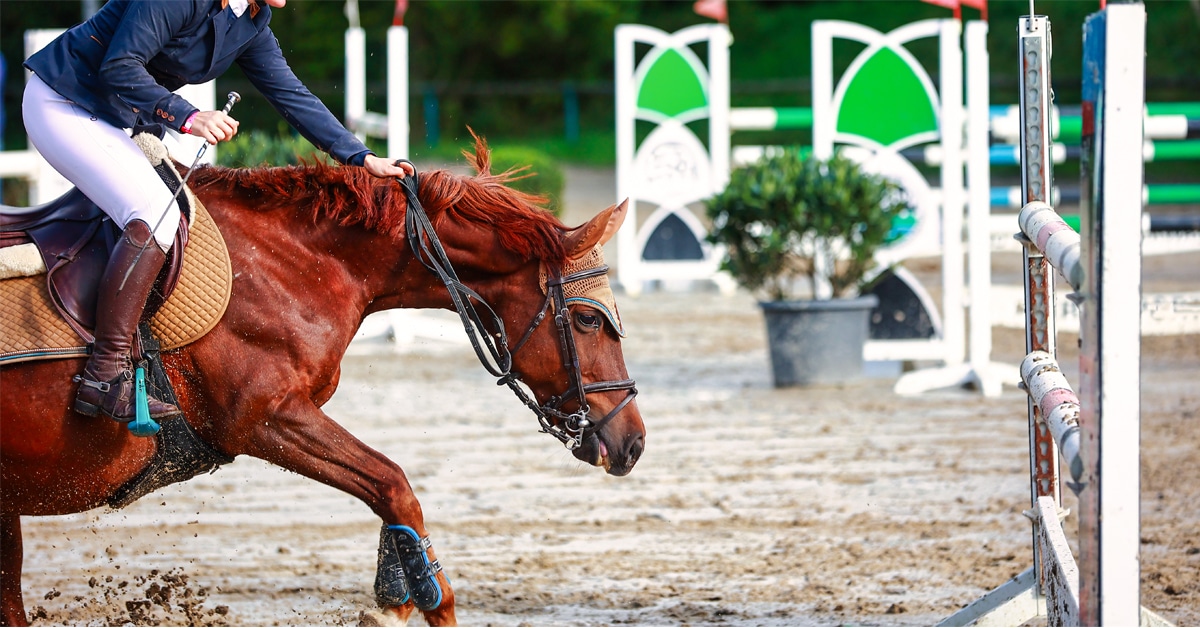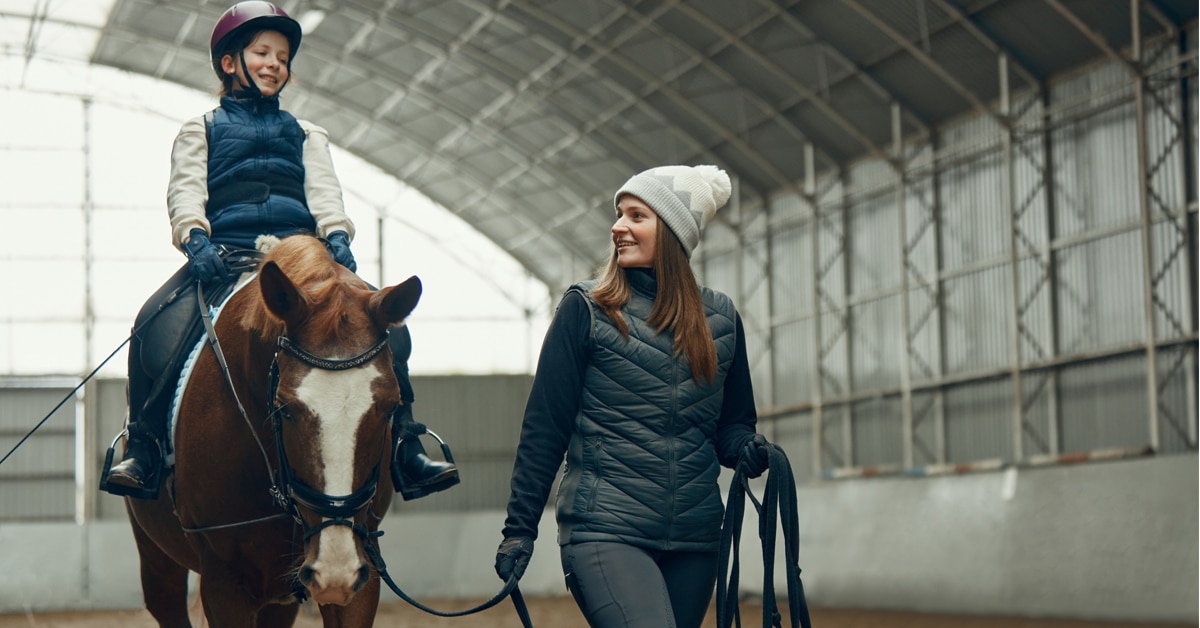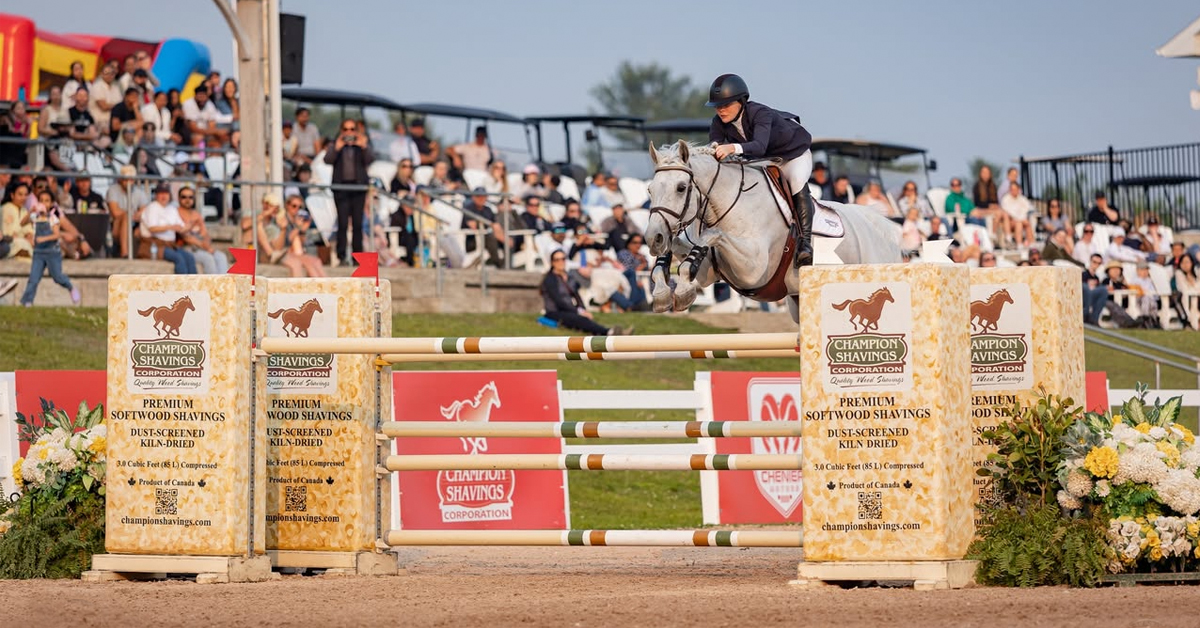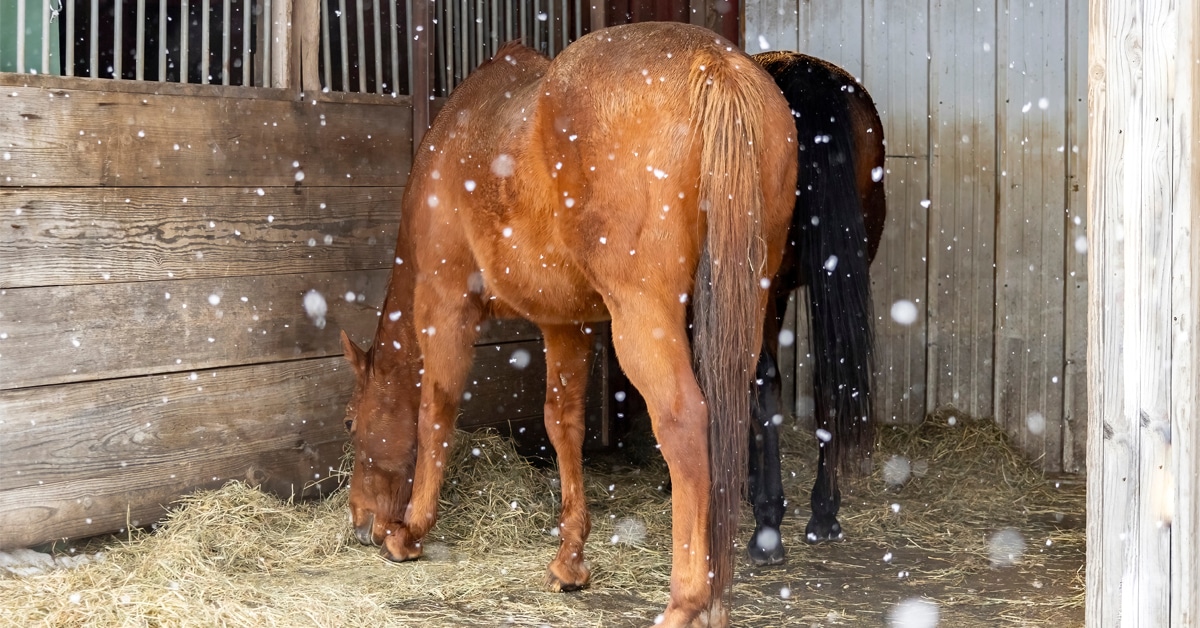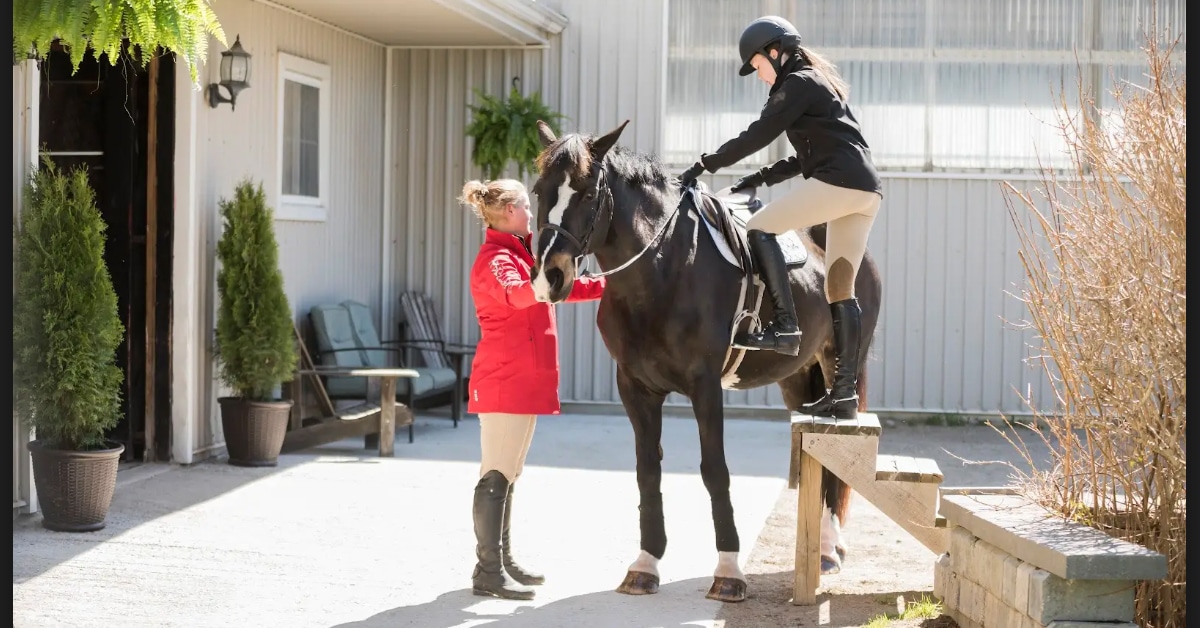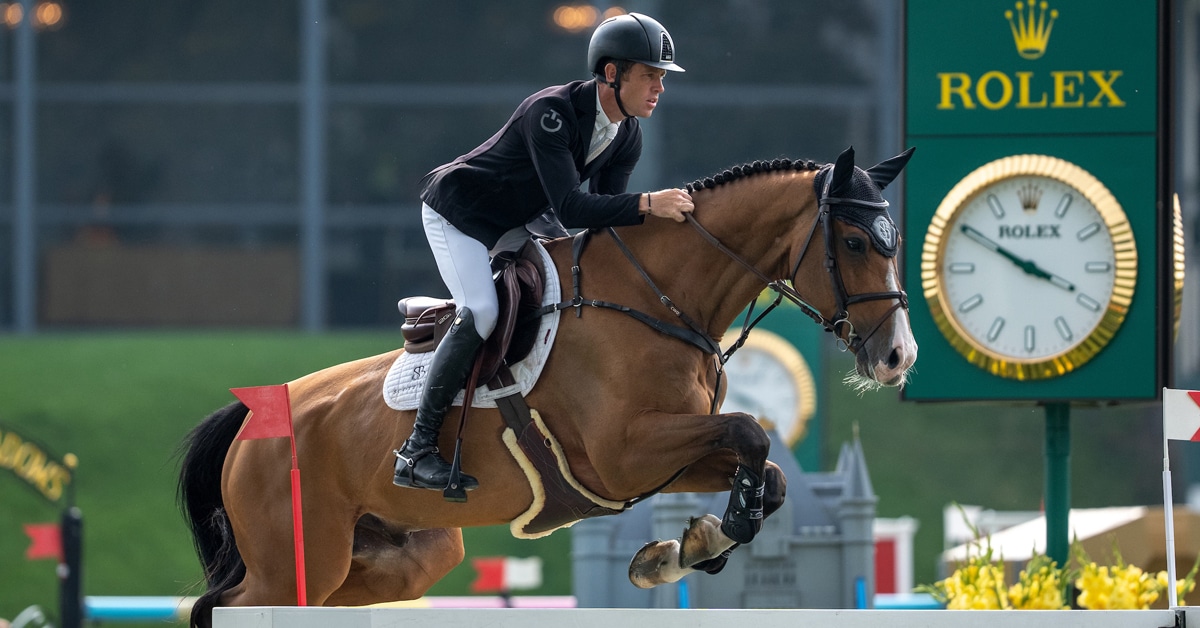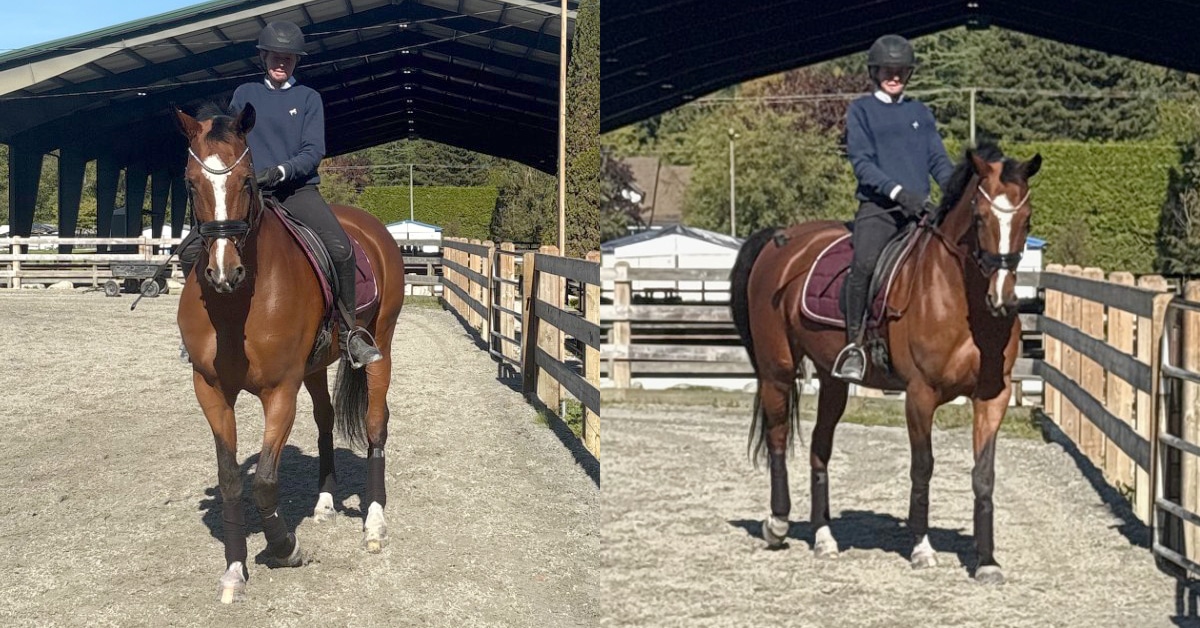It’s important to know your test really well. There are parts on every test where marks are fairly easy to get. For example, in the Prix St. Georges test there is a movement at K where you are asked to make a walk-canter transition. That single transition is worth the same mark as five three-tempis across the diagonal. If you do lose marks in one area, you have the chance to make them up with a strong performance elsewhere in the test.
Know the coefficients in each test. At training level, movements such as the free walk and the stretch circle carry a coefficient of two. In Prix St. Georges there are coefficients on the trot half-passes, collected and extended walks, and canter pirouettes. While mistakes in those sections will be costly, they can also be a valuable source of additional marks when performed well.
No matter whether you are competing at walk/trot or grand prix, every test features an entry up the centre line with a halt and salute at the beginning and end of the test. Clearly the entry and halt is an exercise well worth spending time on; doing it well can really improve your overall mark and help mitigate the damage if you have an error or spook elsewhere in the test.
Prevention is just as important as damage control. Practice riding in a regulation-size arena with letters set up and decorative flowerpots at home. At the show grounds, spend time walking your horse in the competition area so he/she gets a chance to look around without being asked to perform.
Know the triggers that excite your horse and design your warm-up accordingly. Some horses get hotter the longer you work them, while others get calmer. Sometimes nervous horses are better if you can warm them up in shorter, more frequent rides. Some horses are calmer when ridden in company and warm up better with a buddy or in a group of horses; others are better indoors than outdoors. With a young horse, try to pick your shows to give the horse a good experience so he/she thinks shows are fun rather than scary.
It takes time to know your horse in a competition situation. Most horses change in attention, sensitivity, and relaxation, which is part of the challenge and fun. While mistakes will inevitably occur, they are all part of the learning process for both horse and rider. Enjoy the journey!
The Latest
